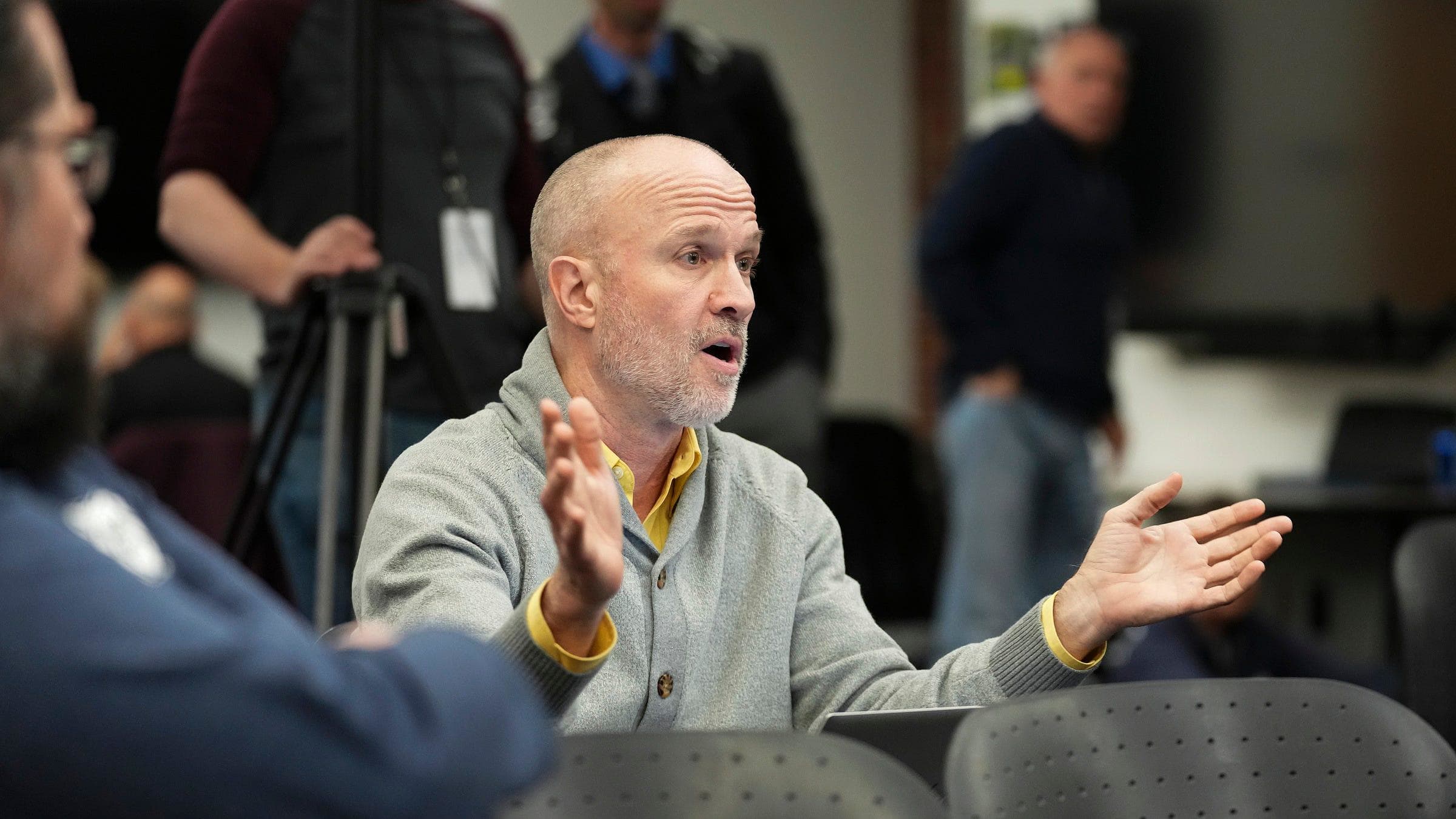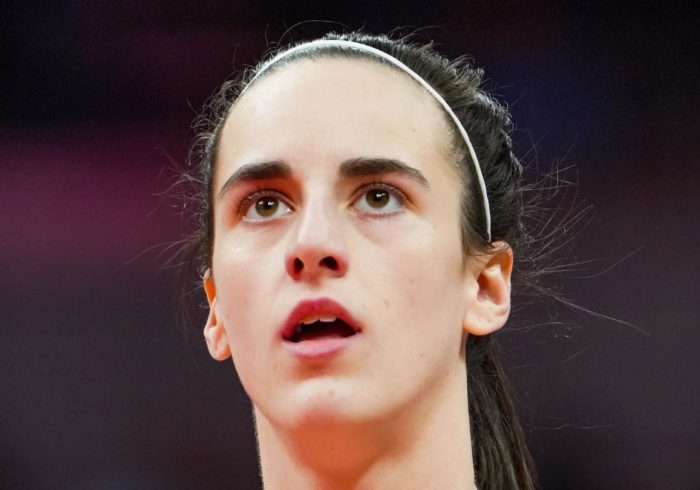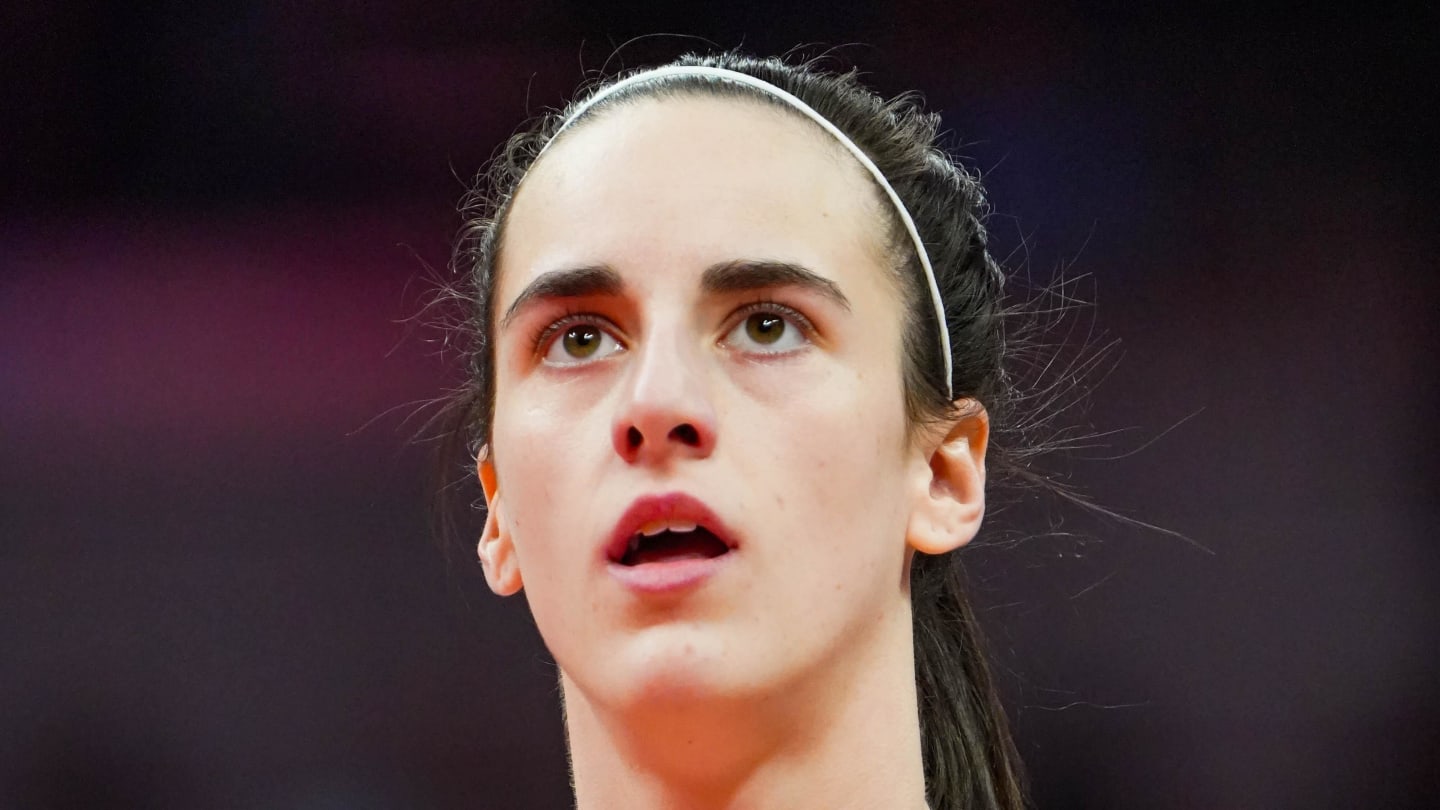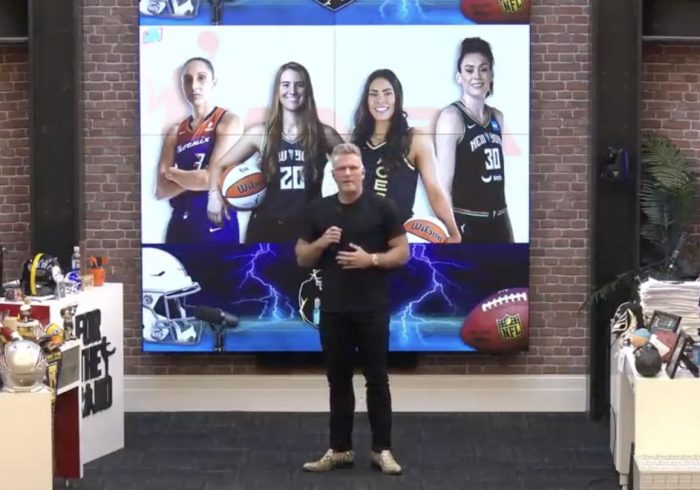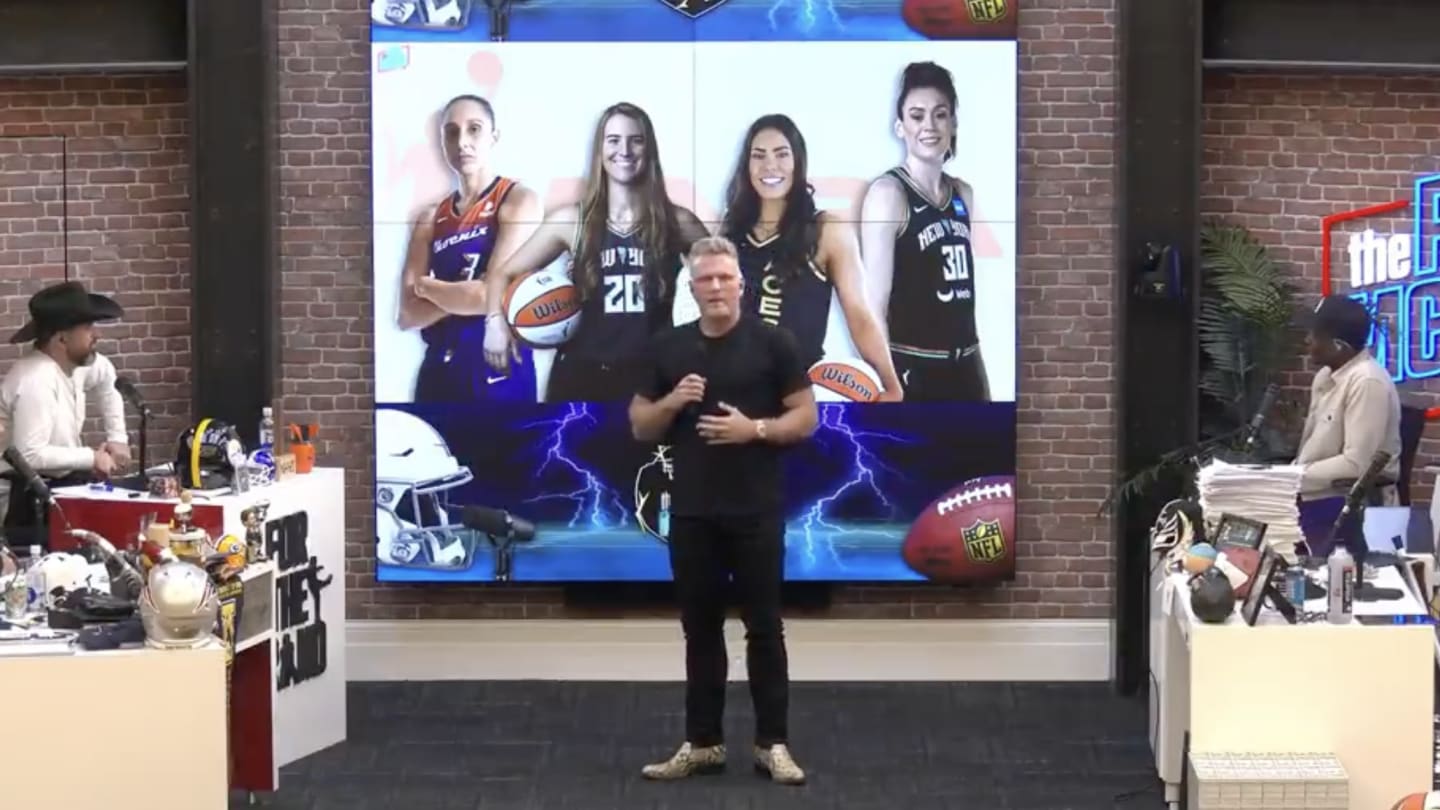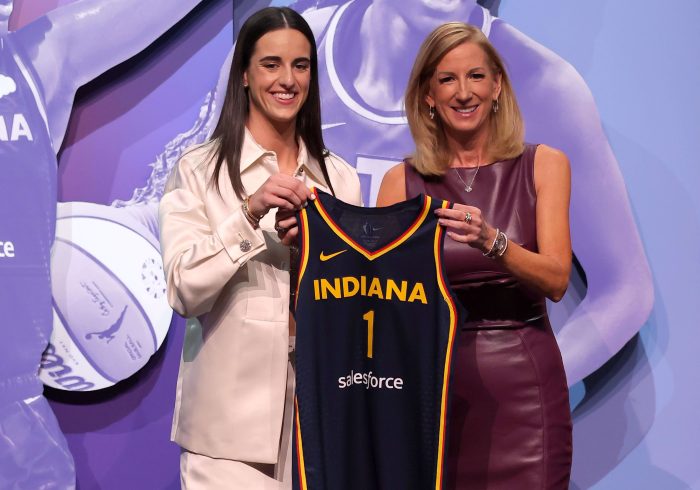Gregg Doyel, a longtime sportswriter with the Indy Star, has been suspended for two weeks and will not cover any Indiana Fever games this season after his press conference incident with Caitlin Clark, according to a report from Bob Kravitz.
Kravitz, a former writer at the Indy Star himself, broke the news on his Substack on Tuesday. Doyel has not published a column since April 29, despite the Pacers being in the Eastern Conference semifinals.
Doyel would not comment on the incident or related suspension when reached by Kravitz for comment. He is expected to return to work on Monday, May 13.
Doyel’s discipline stems from Clark’s introductory press conference with the Fever on April 17. During the press conference, he began a question by giving Clark her patented heart gesture. When Clark asked if Doyel liked her well-known hand signal, Doyel replied with “Start doing it with me and we’ll get along just fine,” which led to an uncomfortable look by Clark.
Doyel was widely criticized in the media for his strange encounter with Clark, so it should come as no surprise that he has been disciplined for his antics.
